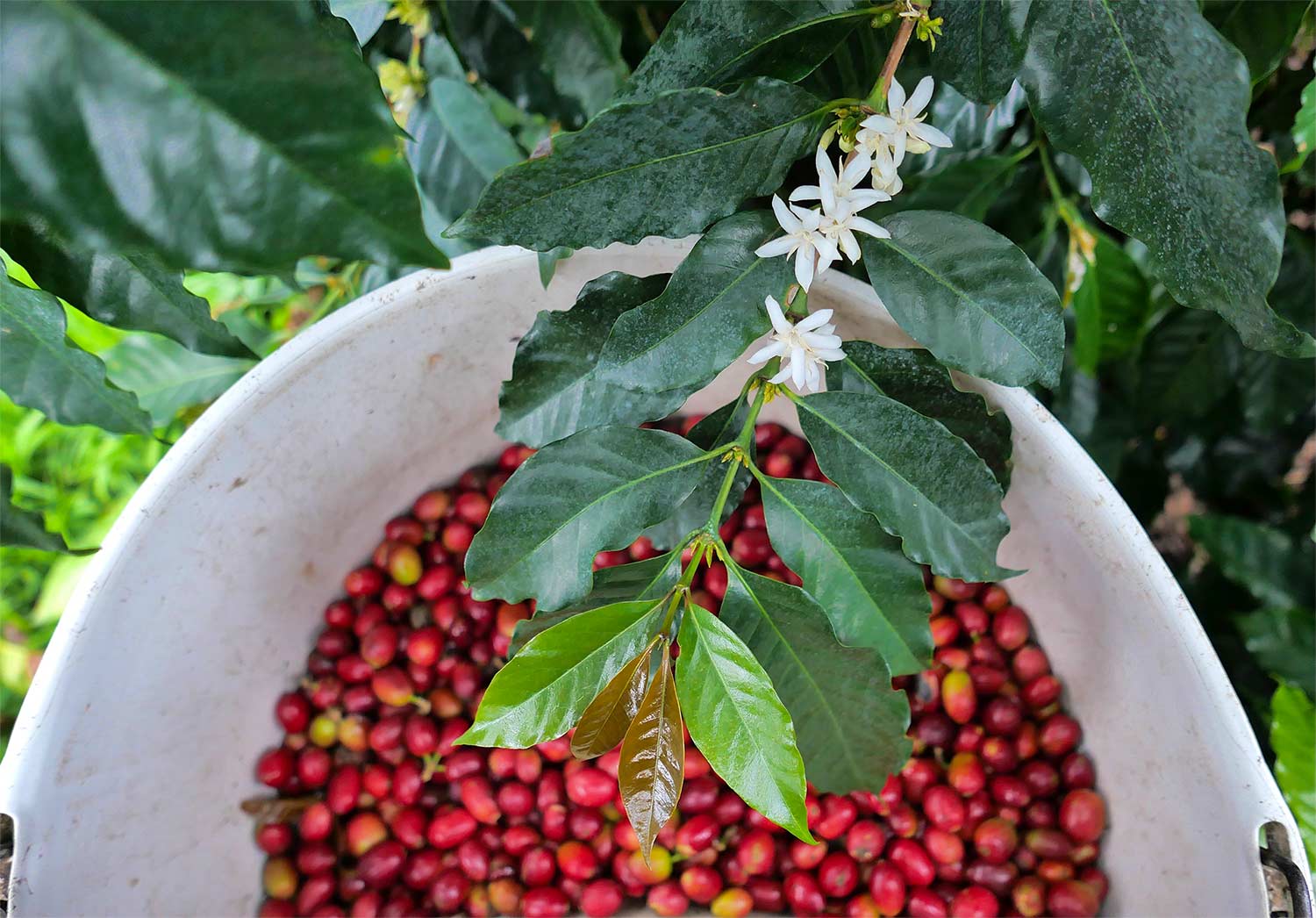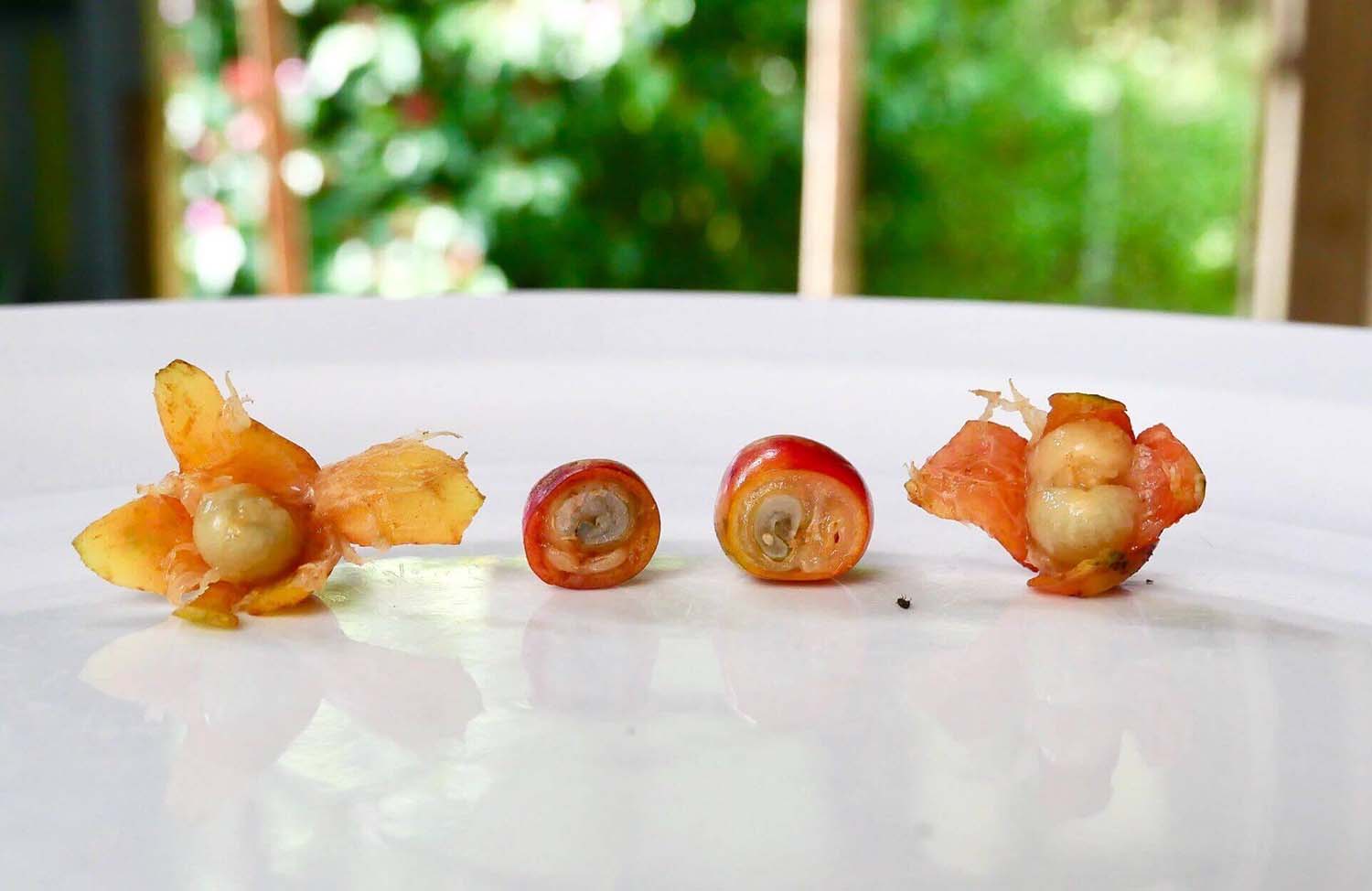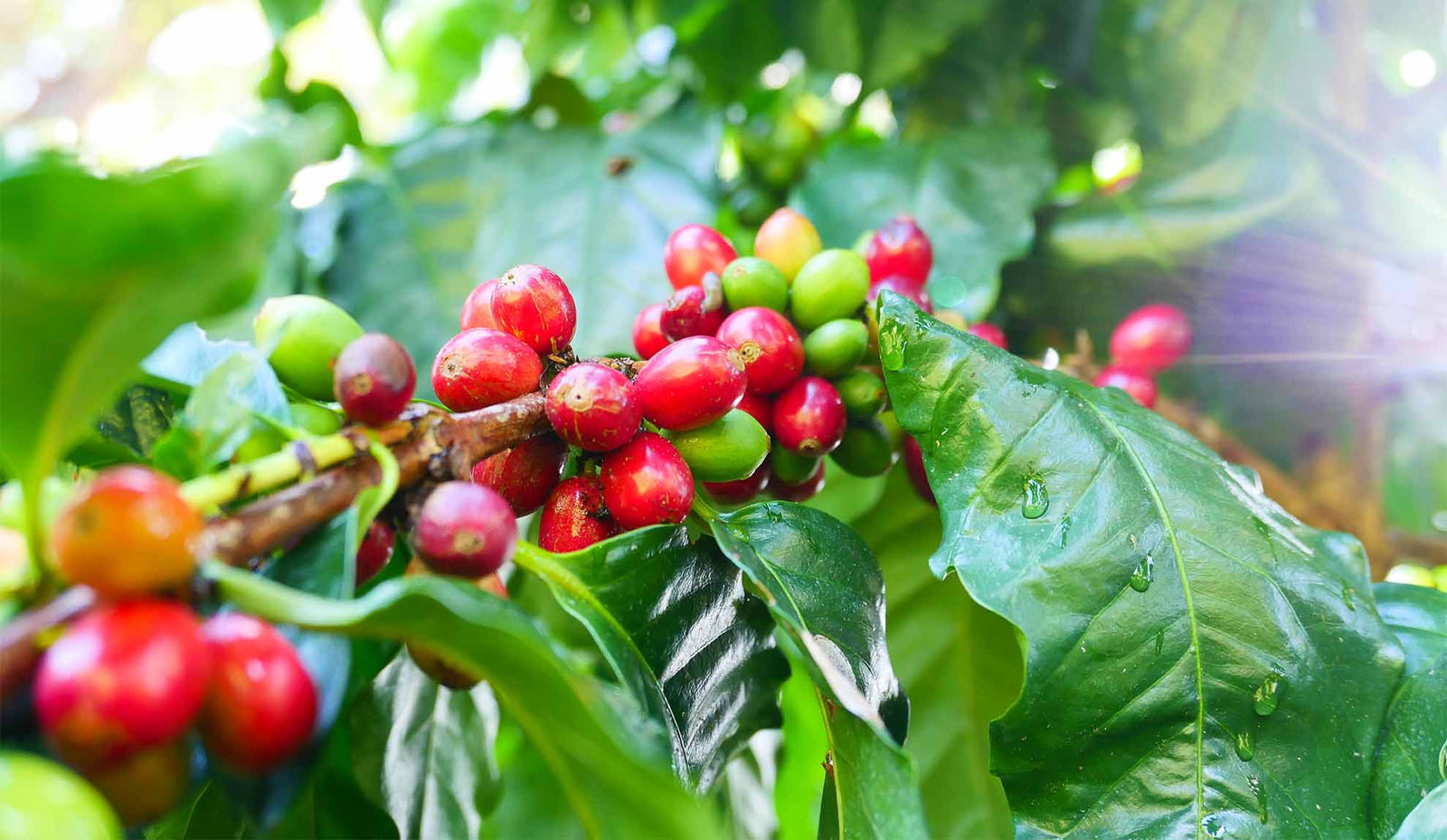"If coffee provides this great tasting beverage experience, but it does so at the cost of the dignity, the value or wellbeing of the people or the land that produced it, it can’t be specialty coffee." - Ric Rheinhart, Specialty Coffee Association Executive Director
We’re proud to develop, source and share great Hawaiian specialty coffees. Specialty coffee takes a whole systems approach to economic, environmental, and agricultural well-being, because we, as an industry, have learned that sustainability is rarely black and white.
What is Specialty Coffee?
Although there’s no certification for specialty coffee, a coffee must earn at least 80 points in a cupping by a certified Q Grader, and be free from defects, such as mold, to qualify as specialty-grade.
In our experience within the local and global coffee community, farmers who want to achieve specialty-grade take better care of their land, have updated infrastructure, and pay farm workers a premium to harvest or sort ripe coffee cherry.
This holistic, relationship-based approach to producing and purchasing coffee ties premiums to quality, differentiation, innovation and sustainability. Great care is taken throughout the farm-to-cup process to create incredible coffee experiences -- from terroir, to variety and roasting expertise.
FAIR TRADE
We’re occasionally asked if our 100% Hawaiian coffee is “Fair Trade”—the industry term that certifies sustainable development and fair wages for products produced internationally.
Because our coffee is grown in Hawaii, our wages and processes are already bound to U.S. labor laws and regulations, and everyone in our supply chain is paid a living wage for their work. Whereas international coffee is tied to global trading markets (NYSE) that drive down costs and slash the incomes of small growers, our coffee farmers negotiate directly with buyers and keep a higher share of overall profits. This increases profitability for local producers, and helps to support small agriculture as a viable industry
Read more about the price of Hawaiian coffee here.
GMO
According to the National Coffee Association, there are no GMO coffees commercially available in the marketplace. Therefor there is currently no GMO coffee produced in Hawaii or anywhere else in the world.
ORGANIC HAWAIIAN COFFEE
Certifications can be excellent marketing tools for retailers and farms. And while some are able to absorb the cost and additional infrastructure required for certification, for most of the 800+ family-run coffee farms in Hawaii, organic certification either doesn't make sense or can be counter-productive.
Organic certifications are difficult and expensive for family coffee farmers to sustain, in part because of the additional equipment costs, which can run $20K - $100K or more. In addition, multiple studies show that crop yields on organic coffee farms are lower by 20% - 30% because of the difficulty in getting adequate nutrition to the plants. As a result, farmers are incentivized cut forest in order to plant more coffee and make up for low yields. This effect has both been reported on in research, and we’ve seen it first hand. It’s both dangerous for our island ecosystem and for sustainable farming at large.
Is there a way to achieve the common goals of organic agriculture, while mitigating the risks and costs? There is.
(1) Reducing the risks of consuming harmful chemicals
(2) Ensuring farmworker safety
(3) Limiting impact on the ecosystem
Chemicals used in Hawaiian coffee production:
In some countries, commodity coffees are heavily treated with potent chemicals. That's not the case in Hawaii. Until recently, the Hawaii coffee industry has enjoyed a relatively pathogen/pest-free existence. Today, the most common treatments for pests and weeds on coffee in Hawaii are:
- Beauveria bassiana: a natural predatory fungus that parasitizes the coffee berry beetle.
- Copper: an organic mineral used for fungal control.
- Glyphosate: the active ingredient in Roundup.
 See the little white spec on the tip of this coffee cherry? ☝🏽 It’s an amazing natural “pesticide” called Beauveria Bassiana that farmers use to treat a beetle called Coffee Berry Borer. This parasitic fungus lives in soils throughout the world and acts as a parasite on various arthropod species (like CBB).
See the little white spec on the tip of this coffee cherry? ☝🏽 It’s an amazing natural “pesticide” called Beauveria Bassiana that farmers use to treat a beetle called Coffee Berry Borer. This parasitic fungus lives in soils throughout the world and acts as a parasite on various arthropod species (like CBB).
Pests, diseases and problems are inevitable in every crop. We think it's great that, here in Hawaii, the first line of defense for our coffee crop wasn't a harsh chemicals or genetic modification, just a little white fungus.
While the Beauveria and Copper are widely accepted as harmless, many producers are looking for alternatives to glyphosate because, if accidentally sprayed on the trunk of the coffee tree, it can cause minor damage.
Because glyphosate is only sprayed on surrounding weeds and never directly on the coffee trees, it’s highly unlikely to reach the bean and it poses a greater risk to farm workers and soil biology than to coffee drinkers.
Takeaway: Hawaiian coffees are minimally treated, meaning their production is healthier for the planet, farmworkers, and you.
Residue in the cup: "Will the chemicals end up in my cup?" According to the research, no. Based on what has been studied, trace chemicals - herbicides, fungicides, and pesticides - are burned off or rendered inert during the roasting process and therefore pose little to no risk to coffee drinkers. This has been noted in two studies, one conducted in Germany in 1984 and the other conducted in Japan in 2012.
Takeaway: Research suggests that chemicals don't end up in the cup. But even if they did, Hawaiian coffees are minimally treated.
“No spray”: While none of our coffees are organic, some are “no spray”. This means that neither herbicides or pesticides are used, and the producer uses common fertilizing practices to adequately nourish the tree (here's an example of a no-spray farm in Kaʻu). We practice no-spray coffee farming on our Puna coffee farm. Instead of glyphosate, we use sheep to cut the grass!
Takeaway: “No spray” is a local term meaning neither glyphosate nor inorganic chemical pesticides, herbicides or fungicides have been used on the crop. We carry many no-spray Hawaiian coffees throughout the year. These are typically all of our Puna coffees, Hamakua coffees, and a selection of our Ka'u coffees.
** Agriculture is constantly changing. We’ll update this article with new information as it’s available. Big Island Coffee Roastersʻ Brandon and Matt find a farm cat while harvesting at a lush no-spray coffee farm in Kaʻu.
Big Island Coffee Roastersʻ Brandon and Matt find a farm cat while harvesting at a lush no-spray coffee farm in Kaʻu.




